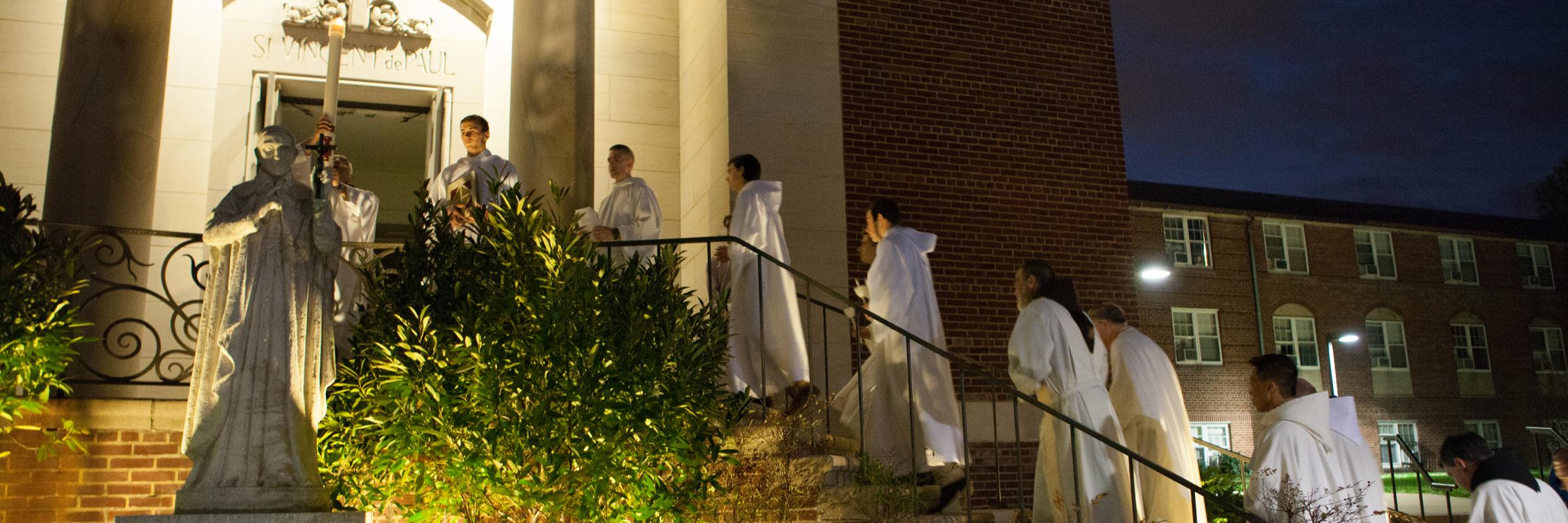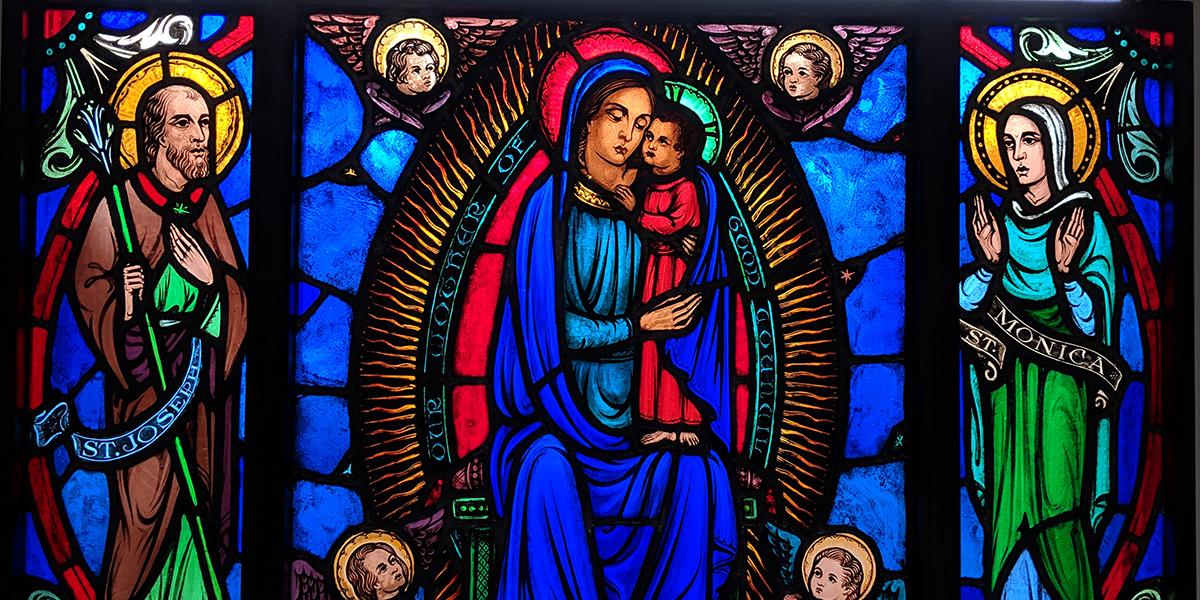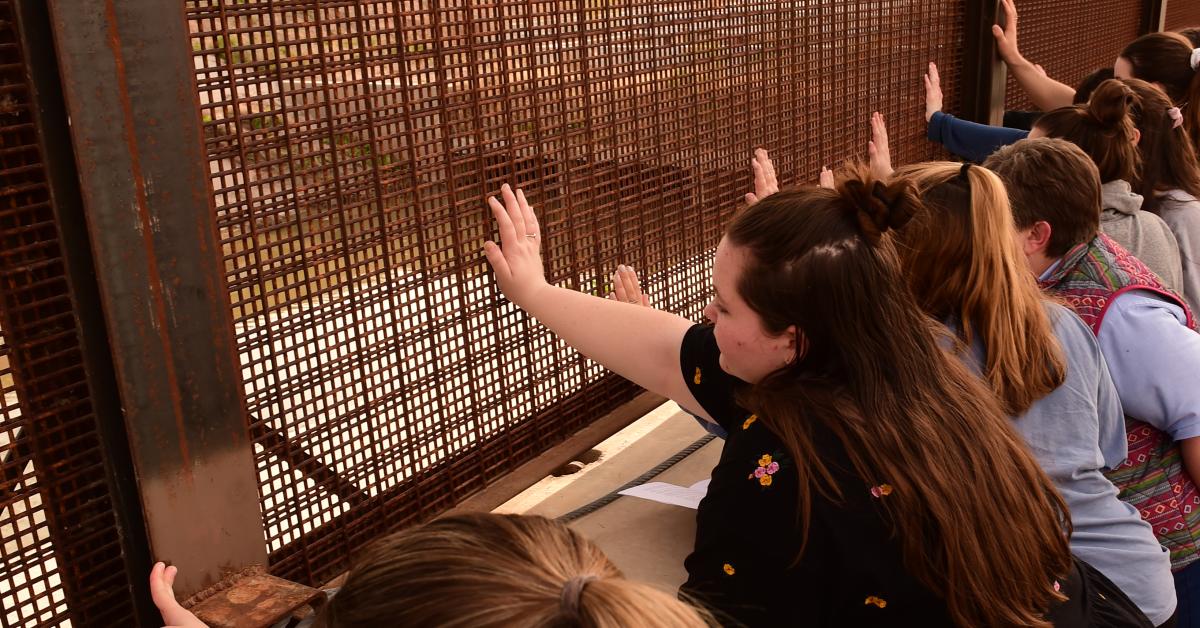“Therefore, overcome with paschal joy,
every land, every people exults in your praise
and even the heavenly Powers,
with the angelic hosts,
sing together the unending hymn of your glory,
as they acclaim…”
So concludes every Easter Preface in the third edition of the Roman Missal, a part of the Mass that is easy to miss since it begins the long soliloquy of the presider in the Eucharistic Prayer. Yet, in the season of Easter the Preface does not merely state what the resurrection accomplishes; it directs the appropriate response of all the cosmos to this definitive action of God in human history. It isn’t just choirs of angels who delight and rejoice; it is now contingent upon all creation to exult with overwhelming joy.
“Easter is a difficult season, the most difficult season for believers to enter. […] Easter challenges us to discover a God who neither abandons nor forsakes us, a God who dares us to believe in the great power of selfless love, and a God who threatens us with resurrection.”
— Rev. James Sabak, O.F.M., B.A. 1985, M.A. 2003, Ph.D. 2012
The Preface places strong and powerful emphasis on communicating that exuberant, unfettered, unrelenting joy, which is the foundation of Easter and the Easter season. A frivolous giddiness, which in some circles might contradict the “serious demeanor” of the liturgical enterprise. “Unbridled joy” may rarely come to mind when celebrating in some assemblies. However, the preface specifically calls forth such emotion in drawing the assembly into the Eucharistic Prayer.
Consequently, then, there is a lot that challenges the Easter season to, in fact, be an Easter “season.” Seven weeks of…JOY?!?! Impossible! Does this ask too much of believers? Fifty days of persistent joy. How is such a thing possible, especially when global, communal, and personal circumstances echo tragic and more virulent truths to mock such sentiments? How is it possible to keep up the joy we are told to have at this time of the year when there are so many other distractions to take our minds and our hearts to other places than an empty tomb or a room behind locked doors? It makes “keeping Easter” all the more difficult — particularly when the only reminder into week four might be the persistence of an “Easter banner” still displayed in the church.
“Without Easter, there is no faith, there is no community of believers, there is no God in whom to believe.”
— Rev. James Sabak, O.F.M., B.A. 1985, M.A. 2003, Ph.D. 2012
It proves that Easter is a difficult season, the most difficult season for believers to enter. Truly, our culture and society place more emphasis on preparing for the feast than on celebrating it. Think of all the time put into Lent; is there anything comparable in celebrating Easter? It can be almost a letdown come Easter Sunday – after all the hours and activity put into making Lent particularly penitential, all our culture and society point to is a single day.
But the more complex reason is our inability at times to realize that, without Easter, there is no faith, there is no community of believers, there is no God in whom to believe. The death of Jesus, contrary to what most people think, does not bring salvation — death is death. It is only in being raised, in living again, that Jesus becomes Christ, and is given the “name above all names,” at which “every knee in heaven, on earth, and under the earth, must bend.” Easter takes work to celebrate, more work than Lent, surprisingly, because Christian life takes work, hard work, to become a life that gives life and one that does not blindly follow rules and regulations, or one that dies the slow and suffocating death of empty moralism.
“Seven weeks of…JOY?!?! Impossible! Does this ask too much of believers?”
— Rev. James Sabak, O.F.M., B.A. 1985, M.A. 2003, Ph.D. 2012
We must, despite all the absurdity, all the impossibility, all the seemingly nonsensical fantasy, which can complicate and debilitate the power of Easter, believe that with God nothing is impossible and that with God all things are possible. If we fail to believe, we close our hearts to a God who at every moment surprises us by moving us beyond the comfortable and the practical into the extraordinary and glorious. To exist unaware that such is indeed our God is a state of living in which we must fear never to be found.
Yes, Easter does ask much of us, but that is Easter’s challenge. There is nothing flippant about the paschal joy the Resurrection calls forth. It is not a joy that absurdly masks the pains and brokenness of the world. Easter challenges us to discover a God who neither abandons nor forsakes us, a God who dares us to believe in the great power of selfless love, and a God who threatens us with resurrection. A threat to believe and profess that death, in all its forms and manifestations, does not, and will never, have the last word in our destiny as human beings. A challenge necessary to engage and grow ever stronger in faith. To grow, as it has been said, so that once again we may “put back Christ in the center of human life, where for too long we have placed sin and death.”
Published on: Monday, April 18, 2022
Tags: Holy Day, Holy Days





